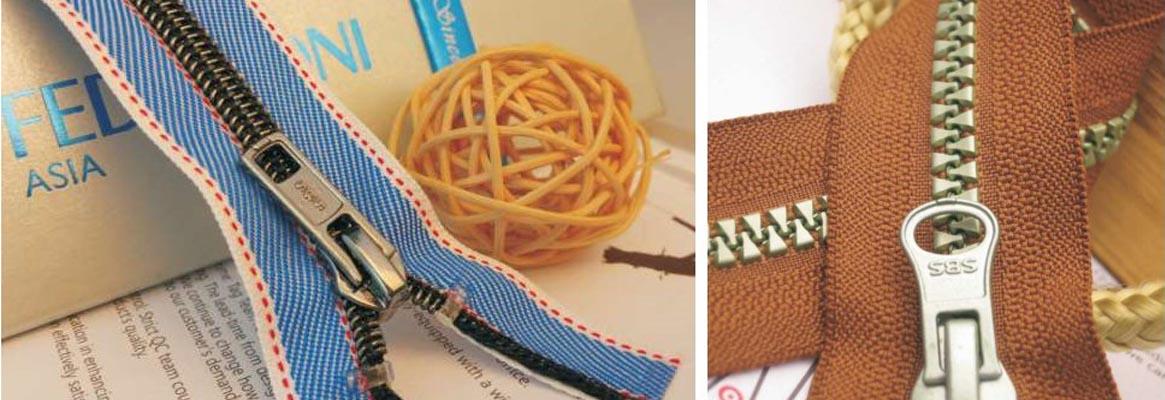Camping is not an unknown term in today's era and the tent is the foremost accessory that clicks in the mind with the word camping.
Many campers may won't pay any attention to the zipper attached to a tent until it does not work. Just imagine that the tent zipper is not getting closed and its teeth becomes loose while tucking the tent zip during your rainy day camp. You might end up spending the night leaving in a wet, cold and windy tent without a repair kit and replacement zipper on hand.
Therefore, the quality of tent zippers can't be compromised. Whether you are a tent manufacturing company or an individual who may have to buy a tent someday, we would like to walk you through tent zippers in this article.
Types of tent zippers
There are basically two different types of zippers used for making tents and canvas products.
1. Coil zip
Commonly known as 'spiral zip'. It has continuous coils of material that is run on both the sides of the zip. The material is often prepared from nylon or polyester or sometimes metal wire. This zipper is more flexible and functions well around corners on curve planes, due to which it is often used in making suitcases/bags with curved openings and curved tent doors. However, it can easily be twisted or bunch up on itself and is difficult to bring back on original form. This leads to a stuck zipper which refuses to open or close.
2. Chunky zip
It is often named as Vislon or 'tooth zip'. The word 'vislon' comes from the water and the zipper is given such name due to its manufacturing from corrosion-proof vislon plastic. The zipper is also named 'tooth zip' as its teeth are molded directly on the zip tape. The tough solid zip runs straights and can be used on the annexes of the caravan. However, very tough ones can be of no use if the individual teeth get dislodged or broken.
Both these zippers come in the form of continuous as well as open-ended forms. Continuous zippers are non-openable on one or both ends and are long length that can be cut to sizes as needed. But the open-ended ones come with varieties of set with pre-determined length.
Both the types are very much different from one another depending on its size and shapes and are not interchangeable between the types. The width as well as the thickness of the teeth varies from manufacturer to manufacturer. It is preferred to double check the size of the zipper with the tent. Choose the coil zipper if the door of the tent is curved or pick a chucky one if the toughness is the priority. Heavy duty zippers can also be used such frequent task. You can visit sbs-zipper.com to learn more about these types of zips.
Tips to take care of tent zippers
-
Keep the tent and its zipper free from dirt, grit and slit. Shaking or sweeping the tent can be useful in this regard. Set the tent in the yard for cleaning but avoid using any brush or cleaner. Wipe the tent with the piece of a cloth and spray the coil of the zipper with the sprayer and then dry it well. Take extra care while drying the zipper.
-
Do not force the zipper if the fabric is stuck in the teeth. Gently work on it rather than pulling it. The coil or the slider might get damaged if pulled hard.
-
Use zipper lubes for zipping up the tent smoothly. However, dirt or dust easily gets stuck to the zipper with the application of lube or any greasing products on it. So it is required to clean and wipe the zipper on regular basis if the lubricating agent is used.
Reference:
1. SBS zipper
2. Canvasthings.com.au
3. Specialtyoutdoors.com
4. Travellingtwo.com










Comments